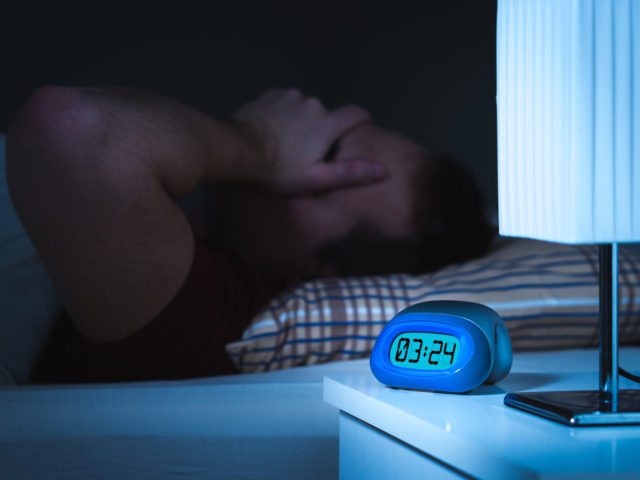If you’re having difficulty falling asleep or staying asleep, you could be suffering from insomnia. The causes of insomnia can range from stress and anxiety to medical disorders. Many people turn to prescription or over-the-counter medications to push them into a state of sleep. Unfortunately, there are several issues with these methods. Apart from potentially developing a dependency on these medications, these drugs tend to have side effects such as difficulty waking up in the morning, often referred to as “hangovers.” Some people even have difficulty staying awake through the next day. Even “natural” supplements like melatonin, the hormone developed in the pineal gland that helps the body know it’s time to slow down and rest, can affect your body’s ability to produce it naturally, hindering your ability to fall asleep even more. Before opting for these methods, try these simple and effective tricks to combatting insomnia.
Stick to a Sleep Schedule
When you were in grade school, you likely had a pretty strict schedule of going to bed and waking up at the same time each day. This method is actually proven to be effective for people who suffer from insomnia. Even if you can’t necessarily “fall asleep” at the same time, try to at least be in bed and away from electronics at the same time each night.
No Caffeine or Food Before Bed
Everyone’s metabolism and sensitivity to caffeine are different, but you shouldn’t have caffeine, alcohol, or heavy foods too close to bedtime. Try to cut the caffeine no later than 4 pm if you plan to sleep at 10 pm. Try to have your last meal at least 2-3 hours before heading to bed.
Maintain a Nutritious Diet and Exercise Routine
Exercise and healthy eating habits promote your body to regulate itself and make it easier for you to fall asleep. Sugar, sodium can affect your metabolism and make it difficult to sleep.
Avoid the Electronics Before Bed
Sometimes we’re too restless to try to sleep so we distract ourselves with televisions, tablets, and cell phones. The blue light in these devices actually affects your pineal gland and reduces the production of melatonin, making it harder for you to fall asleep. If you’re having trouble sleeping, try to get up and do some light stretching. You could also try to read a book or listen to some relaxing music.
Meditate to Promote Sleep
Many sleep experts promote deep breathing, meditation, and other relaxation techniques to help calm the mind and body, make falling asleep easier. There are various mobile apps that offer guided meditations, deep breathing instructions, and calming sounds and music to encourage a deeper rest.
Release the Stresses of the Day
Sometimes our brain doesn’t know when to stop thinking, planning, and preparing. Many sleep medicine professionals know that patients have difficulty sleeping is due to overactive cognitive processes. Thinking about sleeping can hinder you from actually sleeping. Remind yourself that you can always get back to your responsibilities in the morning and get back to meditating.
Try Segmented Sleep
In some European countries, such as Spain, there is a social norm to close businesses up for about 3 hours in the afternoon for everyone, including employees, to sleep. This is known as “siesta” and it literally translates to “nap.” Historians and sleep experts also noticed that in previous centuries it was common to sleep for three or four hours, wake up, work for a few hours, and then returning to sleep for another three hours or so. While this may not be conducive for a typical 9-5 job, you can try to implement your own form of segmented sleep by sleeping early, waking up in the middle of the night for a couple of hours to handle any additional tasks, then go back to sleep before the next day.
If you are struggling with insomnia and looking for a solution, schedule a detailed evaluation with Dr. Gingras at Gingras Sleep Medicine. She will discuss your issues and recommend sleep treatment options that are personalized to you. Schedule a sleep medicine consultation by calling our office at (704) 944-0562 or request an appointment online at www.gingrassleepmedicine.com.

